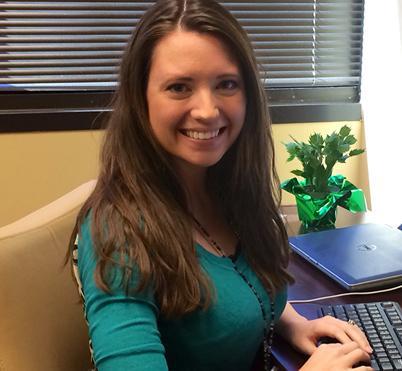MTSU STEM Mentors
Ali Roberts

How would you describe your college experience?
My undergraduate experience was challenging. I underestimated the importance of attending class during my first year at MTSU, and I spent the next 2 years trying to repair my damaged GPA. I was enrolled in the pre-pharmacy program that allows for required undergraduate courses to be completed in 3 years and upon admission to a pharmacy program, you are eligible to receive a Bachelor’s degree after the first year of pharmacy school. Needless to say, I felt an immense amount of pressure to complete all the required coursework in 3 years in addition to maintaining an adequate GPA for acceptance, all while participating in extracurricular activities to boost my application. I like to refer to times such as these as “character building experiences”.
With plenty of help and support, I gained acceptance into Belmont’s inaugural pharmacy school class after my 3 years at MTSU. Humbling does not even begin to describe my journey. I was blessed with some of the best classmates, and we became a tightknit group with a class of just seventy-five. Being able to juggle responsibility with fun is a skill that (for some of us) comes with age, and I made some of my most favorite memories during pharmacy school. MTSU equipped me with all the essential tools for success; as a result, I struggled less in pharmacy school than some of my peers. I encourage everyone following the path towards graduate school to keep in mind that there is a light at the end of the tunnel. The road may not be as direct as you would like but with enough determination, you will make it to your desired destination.
When did you know that you wanted to major in a STEM discipline?
After taking several aptitude tests in high school, I resigned that my strengths were rooted firmly in healthcare. I considered the benefits and detractors associated with varying healthcare careers, and I landed on pharmacy. It was a relatively easy decision as STEM fields contribute to all major societal advancements, and the potential impact factor of a career in a STEM field is limitless.
What is the most rewarding thing that you do in your job as a STEM professional?
My job is extremely rewarding as it offers an avenue to interact and collaborate with a diverse group of individuals and practitioners. I have an opportunity to learn something new every single day, and it never gets stale. We are all working towards the common goal of providing optimal patient care, and the knowledge we can gain from one another is astounding.
What would you tell a middle or high school girl about careers in STEM?
You should release all your inhibitions and self-doubt about pursuing a career in STEM. As women, we often underestimate ourselves, but we consistently contribute novel ideas and perspectives to STEM fields. STEM fields are rewarding by many criteria including compensation, job satisfaction, and there is never a lack of demand.
What should middle and high school girls be doing to prepare themselves for college and a STEM careers?
I believe establishing a role model often leads to success. Find someone in your community or family that makes you think “I would really enjoy doing that”; talk to that person about the steps they took in life. You may also identify a place or business where you would enjoy working; ask to shadow an employee or inquire about the skills they search for when hiring. In high school, try to challenge yourself by taking AP courses when offered. These classes will earn you college credit and may allow for abbreviated college coursework.
What advice do you have for teachers and counselors who are assisting students prepare for a STEM major and career?
It is important to motivate and inspire without being overly critical and instilling doubt. I have encountered individuals with the mindset that it’s their responsibility to award young people a “dose of reality”. I recommend adequately preparing students for the challenges they will encounter without crushing their dreams. When students are applying and interviewing for graduate programs, they need to have confidence, not a looming voice overhead stating they should have done better.
What career advice would you give to girls if you only have two minutes?
Don’t be afraid to step outside your comfort zone and challenge yourself. All the really great things in life come after a lot of hard work and some sort of rejection. Those individuals who refuse to be deterred will be rewarded with confidence, satisfaction, and an outstanding sense of self.


